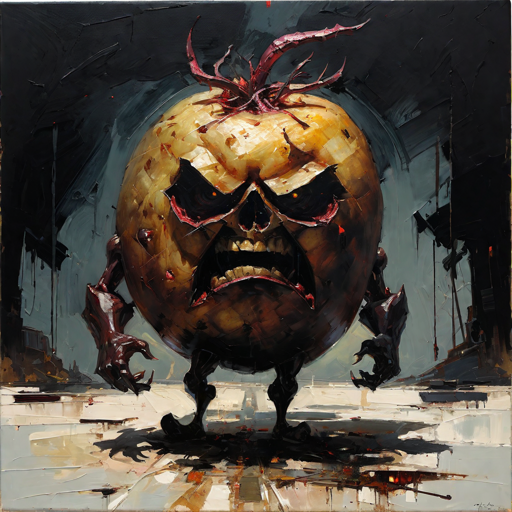Bad potatoes, badder grammar?
“Are potatoes ‘badder’ than usual in the UK atm?” This was the question posed by a reddit user last week. Despite the scare quotes, this use of the word ‘badder’ was met with general mockery (as well as some genuine attempts to answer the question: the wet weather has caused poor growing conditions for root veg this year, if you were wondering). Yet the intended meaning is completely clear to English speakers; more so than if it had been phrased ‘are potatoes worse than usual?’.
Comment
byu/Prestigious-One-8532 from discussion
inAskUK
Comment
byu/Prestigious-One-8532 from discussion
inAskUK
In fact, ‘badder’ has seen a big increase in use since the mid 20th century (although it’s been around for a long time, and was even used by Chaucer). Google books offers numerous titles from recent years such as Bigger and badder: a billionaire romance (2016), How to be a badder bitch (2018) and the Bad guys even badder box (2019). What these titles have in common is that ‘bad’ is used with a special meaning as part of a set phrase. ‘Bad guy’ evokes a stock villain from a story, not just any old guy who happens to be bad. A ‘bad bitch’ is a tough, empowered woman. Thus a ‘badder guy’ is even more villainous, and a ‘badder bitch’ is even cooler and tougher. ‘Can you imagine a worse bitch than Helen?’ makes it crystal clear that the speaker doesn’t like Helen, but ‘can you imagine a badder bitch than Helen?’ implies admiration instead.
These are examples of what linguists call lexicalisation. ‘Bad guy’ and ‘bad bitch’ have become set phrases whose meaning is more than just the sum of their individual parts. In other words, the meaning of ‘bad guy’ is not just the meaning of ‘bad’ + ‘guy’, and would have to be listed as a separate entry in a dictionary. In a sense, it behaves as a single word (which is also betrayed by its special stress pattern: a bad guy is a guy who is bad, while a bad guy is a villain). This is even clearer for ‘bad bitch’: both bitch and bad have strongly negative connotations, but bad bitch is positive.
The coinage of ‘badder bitch’ reveals a change that has already happened under the surface. Two words have become one phrase, with its own unpredictable meaning. Bad and worse are forms of the same lexeme, in the sense that they’d be listed under the same dictionary entry: they are members of the same paradigm. ‘Badder bitch’ shows that changes in meaning can happen to individual forms in the paradigm, rather than lexemes, otherwise ‘worse bitch’ would automatically take on the meaning of ‘bad bitch’. Bad in the newly lexicalised bad bitch starts off its life without any comparative form, so you’ve got to make up something new if you want to use one.
Something similar can be seen in examples like straight or wrought, which started off life as past participles of the verbs stretch and work. Straight in a sentence like ‘I have straight the string’ was regularised to stretched, and wrought to worked. But the forms straight and wrought were left behind in usages like ‘the straight string’ or ‘the wrought iron’, revealing that they had become lexicalised as adjectives in their own right.
Back to badder potatoes. Bad in the context ‘a bad potato/apple/egg (etc.)’ has a special sense of ‘rotten’ that is somewhat lexicalised, hence ‘badder potatoes’ are more rotten, while ‘worse potatoes’ could be worse in any number of ways. Either that, or potatoes are becoming meaner and more villainous as a result of the miserable weather, which frankly I can relate to. Let’s remain vigilant, just in case.
